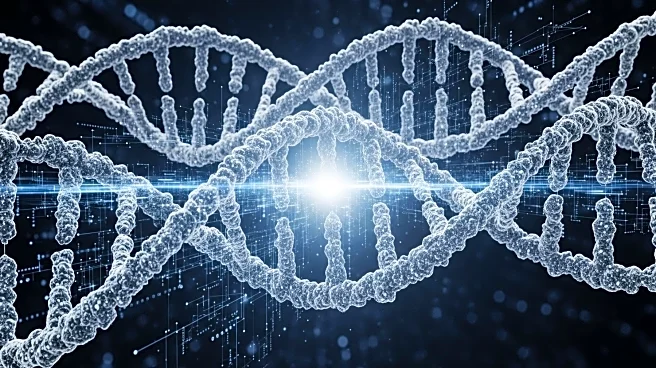What's Happening?
Recent advancements in AI models are revolutionizing biological discovery by effectively utilizing large perturbation data. These models, known as Large Perturbation Models (LPM), are designed to learn from diverse experimental data, including single-cell
and bulk data, genetic perturbations like CRISPR, and chemical compound perturbations. The models operate by representing perturbation experiments as dimensions that allow them to learn from heterogeneous data without losing generality. This approach enables the models to predict outcomes of unobserved combinations of perturbations, readouts, and contexts, thus enhancing the understanding of biological systems.
Why It's Important?
The development of LPMs is significant as it addresses the challenge of integrating diverse biological data, which has historically been difficult due to the complexity and variability of biological systems. By providing a structured approach to analyze perturbation data, these models can potentially accelerate drug discovery, improve genetic research, and enhance the understanding of disease mechanisms. The ability to predict outcomes of unobserved perturbations could lead to more efficient experimental designs and reduce the time and cost associated with biological research.
What's Next?
The next steps involve further refining these models to improve their accuracy and applicability across different biological contexts. Researchers may focus on expanding the datasets used for training these models to include more diverse biological conditions and perturbations. Additionally, there is potential for collaboration between AI researchers and biologists to explore new applications of these models in personalized medicine and biotechnology.
Beyond the Headlines
The integration of AI in biological research raises ethical considerations, particularly regarding data privacy and the potential for unintended consequences in genetic manipulation. As these models become more prevalent, there will be a need for regulatory frameworks to ensure responsible use of AI in biological discovery. Furthermore, the long-term impact of these models could lead to shifts in how biological research is conducted, emphasizing data-driven approaches over traditional experimental methods.















